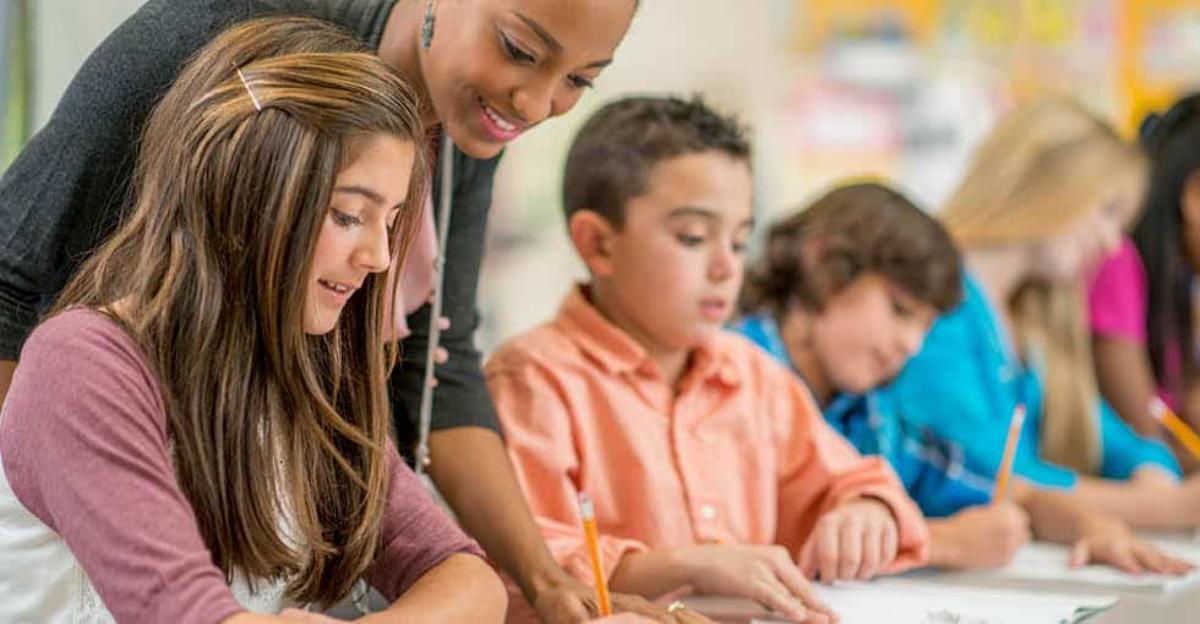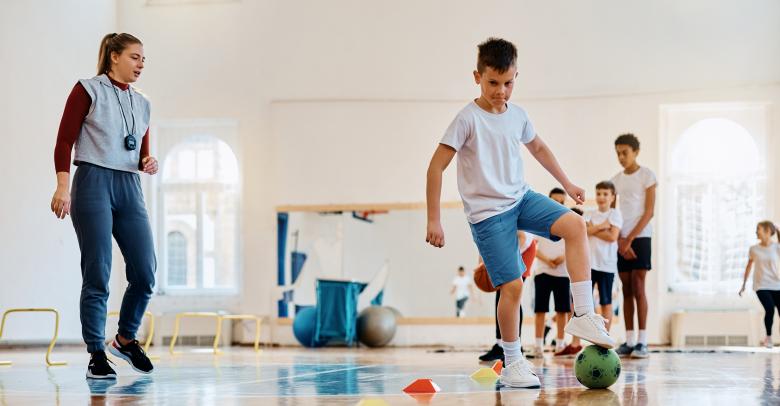By: Melanie Lynch, 2016 National Health Education SHAPE America® Teacher of the Year
One of the hardest things to overcome in health education is the stigma of yesteryear’s health class; the class where there was lecturing as much content as the teacher could squeeze into the allocated amount of minutes that was designated for that health class. It was believed that if you gave the information to a student, they would use it and become healthier in the process. I, too, was one of those ninth grade students who had the traditional health class of reading and answering questions at the back of the book and then being lectured to until I just could not wait for the bell to ring. It is a bit strange, but when I was a freshman “suffering” through this type of health class, I developed a deep interest in teaching health; I thought to myself that I could do this better. I loved health class, but my teacher was draining the joy of learning out of me with every boring lecture.
Fast forward to 2017 and health education has evolved with a well-deserved makeover. All research clearly points to the “just because they know, does not mean that they will do” philosophy. Today, we are looking to have our students obtain health literacy. SHAPE America® defines health literacy as the ability to access, understand, appraise, apply and advocate for health information and services in order to maintain or enhance one’s own health and the health of others. If students obtain health literacy, they will indeed be healthier and have a better quality of life. Lecturing will not provide health literacy. Using the National Standards, which are comprised of content and seven skills, teachers can create student-centered, fun and interactive lessons that will engage students, instead of having them watching the clock and counting down the time to freedom. Letting students practice these skills will enable them to achieve health literacy.
Now that health education has had this amazing makeover and social media has brought so many talented wellness educators together, our health classes have never been better. However, parents of our students still may remember their “old school” health education experiences and may not value health education. This is why it is imperative that we become strong advocates. It is not just good enough to have a great program, we have to showcase these transformed health classes and put them on display for all to see.
One of the easiest ways to get our message home is to create fun, student-centered lessons that are skills-based. Students will enjoy these lessons and afterwards will go home and talk about class. Parents love when their children talk about their day when asked what they did in school instead of giving the canned “nothing” answer. This dinner conversation really breathes new credibility into our programs and helps with that essential paradigm shift of “This is not your mother’s health class.”
One example of a fun, student-centered lesson is called Celebrity Diner. Instead of lecturing for a whole week on all of the different types of drugs, how they affect the body and how they can really impact a person’s job, relationships, etc., each student is assigned to become one of the celebrities that died due to drugs and/or alcohol. They start with finding out who this person was as a child, what kind of family they come from, and what their teachers have said about them. Then they move on to research the person as a celebrity. They need to find information on all of the glories and pitfalls of their career, then tie in their drug use. Lastly, they must find out what substance killed the celebrity and under what circumstances. After everyone has done their research and put their information onto a decorated tombstone, we have our sharing day. I put all of the celebrities in a circle and I play the role of a reporter from Rolling Stone magazine. I simply have the rubric in front of me and interview them to see how well they know this celebrity. They also must report about the properties of the drug(s) that killed their celebrity. Now we have meaningful discussions about addiction and abuse.
Students may ask their parents what they know about these celebrities, especially those that died in the 70’s or 80’s. Now we have students talking about health education at the dinner table! You see, this really isn’t your mother’s health class.
Look for the Teacher Approved icon to shop for products recommended by award-winning and nationally recognized physical education teachers. The physical education instructor’s opinions are solely their own and do not officially represent the views of SHAPE America®.






Leave a Reply